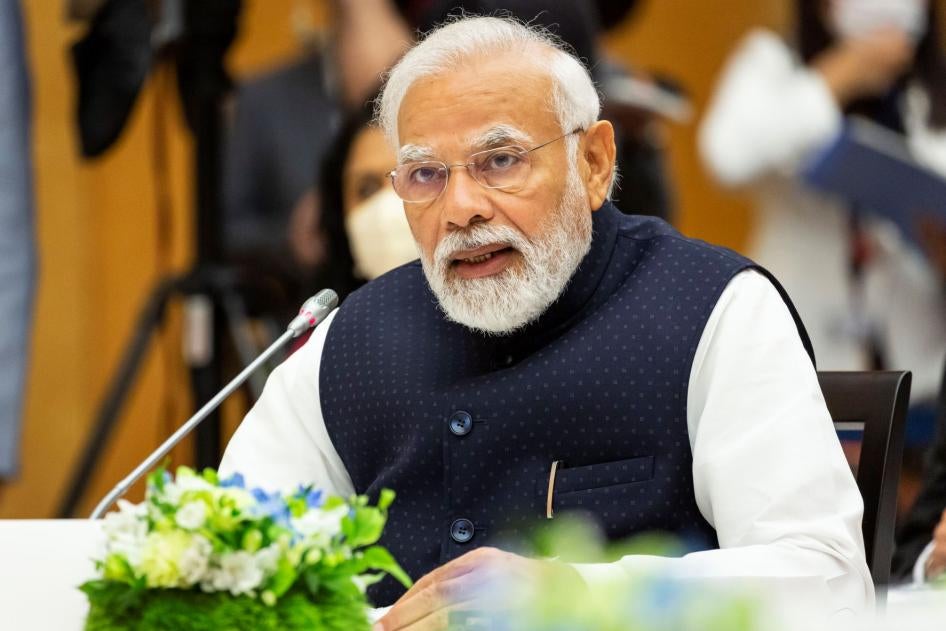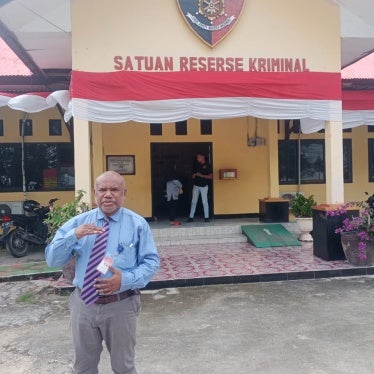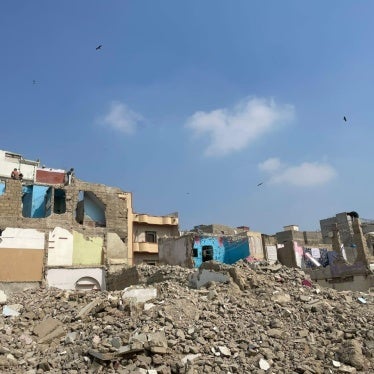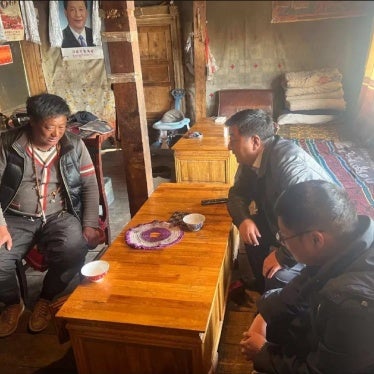Systematic discrimination against religious minorities.
Detention of peaceful activists and government critics on spurious charges.
Use of technology to suppress free expression.
This could refer to China of course, but these human rights violations are also taking place in India. Despite these transgressions, the Indian government largely gets a free pass from the international community as the “world’s largest democracy.” It shouldn’t.
Australia is on an India charm offensive with a host of senior government officials, ministers and state premiers traveling to the country recently, primarily to promote trade. In September, the fifth Australia-India Leadership Dialogue will be held in Delhi involving a delegation of ministers, business leaders and academics. But will human rights be discussed or brushed off as an unfortunate irritant in deepening Australia-India relations?
In June, Australia’s Defence Minister Richard Marles travelled to India to meet with Prime Minister Narendra Modi – the first high-level meeting with India since Australia’s change of government. When asked by a journalist about India’s human rights record, Marles lamely responded, “I’m not going to pass judgment on India. … India is the world’s largest democracy. It does value the rule of law and we are countries that have a shared set of values.”
Australia, India, Japan, and the United States make up the “Quad” – a security pact of the four Indo-Pacific countries formed as a bulwark against the growing influence of China’s government. Closer security and trade ties are part of the Quad’s democratic values-first agenda. Western governments eye India as an attractive alternative market, especially with growing unhappiness with Beijing as a trade partner.
But democratic governments should not repeat the same mistakes they made with the Chinese government by pursuing deeper trade engagement while sidelining human rights concerns. Today, China is not only an economic powerhouse, but the human rights situation has worsened and the government boldly wields its repression within and across national borders.
Meanwhile, the escalating human rights crisis in India under the Modi administration receives inadequate attention. On the global stage, such as at the June G7 summit in Germany, Modi embraced Western leaders and pledged to defend free expression, civil society and religious freedom. But his government’s actions spoke louder than its words.
The same week as Modi’s charm offensive in Germany, Indian authorities arrested Mohammed Zubair, cofounder of the independent fact-checking website Alt News, accusing him of “hurting Hindu sentiments” in a 2018 Twitter post. He was released on bail after three weeks in custody with the Supreme Court refusing to restrict him from “exercising his right of free speech” and warning that powers to arrest should be used sparingly.
That is seldom the case for rights activists or government critics. The authorities have also jailed the activist Teesta Setalvad, accusing her of criminal conspiracy and other crimes in apparent reprisal for pursuing justice for the Muslim victims of the 2002 Gujarat riots. A month later the government released 11 men sentenced to life in prison for gang rape and murder during the Gujarat riots, with members of the ruling Bharatiya Janata Party (BJP) publicly celebrating.
Setalvad and Zubair are among dozens of human rights defenders, journalists, students, and members of religious minorities arrested in politically motivated cases during Modi’s administration. Simultaneously, India’s information technology law and internet rules have put pressure on social media companies to censor content and share user information to aid these prosecutions. Indian authorities have also been implicated in using the Israeli-produced spyware Pegasus to target activists, journalists, and political opponents.
Modi and his ruling Hindu nationalist BJP have sought to legitimize discrimination against religious minorities and enabled violent Hindu nationalism. India’s citizenship law, passed in December 2019, discriminates against Muslims, making religion the basis for citizenship for the first time.
If the Quad and other democratic governments are serious about values-first diplomacy, then they should consistently speak up about crackdowns on human rights wherever they occur, including to hold one another to account.
In an environment of state-backed propaganda and censorship where bilateral visits are regularly spun into expressions of support for Modi’s rule, it is important to find ways to speak directly to the Indian people. During bilateral engagements, Australian officials and politicians should make public statements that outline all matters discussed, take interviews with independent media, and meet with civil society activists and groups. They should also avoid smiling photo-ops with pernicious organizations like Hindu nationalist groups that will be used explicitly as a public endorsement.
Governments should encourage the Modi administration to live up to its legal obligations and expressed commitments on rights. They should express concerns about the erosion of the rule of law, especially with the Modi government’s laws and policies that discriminate against Muslims, and the detention and harassment of critics. These government should adopt benchmarks for rights reform in trade and technology deals.
Put simply, it's a disservice to Indians to simply hail India as the world’s largest democracy. Turning a blind eye to rights abuses will not magically transform India into a country where rights are respected. That approach did not work with Beijing. When outspoken activists are being harassed, silenced, and prosecuted, it’s up to concerned governments to come together to speak out.









